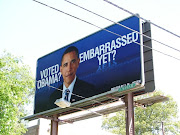As the presidential candidates travel from state to state trying to win over voters, pollsters across the country are just as relentless in reflecting the public's opinion of the candidate's efforts.
While recent polls indicate Democratic nominee Barack Obama has a lead over Republican rival John McCain, there has been wide disparity in the numbers, with some showing the gap as narrow as 4 percentage points and others putting it at as wide at 14 points.
With wide disparities between two polls, how do analysts truly see which candidate is in the lead?
Careful interpretation is the expert's answer. Billionaire investor Warren Buffett once said that "A public-opinion poll is no substitute for thought." However, for those who make their living giving thought to the numbers, public-opinion polls are not a substitute for, but rather food for thought. For election forecasters, they are a central component of a tricky formula.
In an interview with RTTNews, Professor James Campbell of the State University at Buffalo in New York, who has his own election forecasting model, outlined some of the inherent flaws of polls. One such discrepancy has to do with the difference between surveying registered voters and likely voters.
"Most of the polls have tried to measure what registered voters are thinking and that is different than what registered voters are thinking of that time," he said. "I think that the history of that attempt has not been very good and I think the pollsters acknowledge that."
Typically, there are more registered Democrats then registered Republicans, making them overrepresented in polls of registered voters, Campbell said. He suggests focusing on likely voters, or at least separating the results of likely and registered voter polls.
However, lacking that separation, Campbell said he thinks that polls will lean in Obama's favor.
Specifically, Campbell cited a CBS/New York Times poll from earlier in the week that showed Obama with a 14 percentage point lead over rival John McCain.
"I think the CBS/NY Times Poll has always been on the high side for Democrats…a little bit erratic too," he said.
While there will be sampling errors in any poll, and "even by the same organization or the same method is going to yield a little bit different results," Campbell said that it is good to take a look at the average. For his election forecast he relied on Gallup.
Averaging various polls is also recommended by Professor Robert Erikson of Columbia University, who along with Temple University Professor Christopher Wlezien works on election forecasting. Speaking with RTTNews, Erikson said that in his forecast he and Wlezien used all polls, or "whatever was available."
When asked how to reconcile the differences between polls, Erikson said that there is no real way to know if one poll is better than another.
"You don't know which ones are the bad ones," he said. "We just pick an average."
That average came from 30 or 40 polls per month, Erikson said.
Both Campbell and Erikson's early predictors are models that take into account a wide variety of factors. However, their forecasts selected different candidates. Not taking into account the events of the past few weeks, Campbell's model predicted a McCain victory, while the Erikson- Wlezien predicted Obama.
Although Campbell's forecast selected McCain to win the popular vote, there was an unforeseen event that has been the equivalent of "a meteor hitting the campaign." That event - the financial crisis - has seemed to help Obama, boosting the Illinois senator in the polls in the last few weeks.
"Nobody was anticipating this, none of the forecasting model," Campbell said. Calling it an "extremely unusual case," he said that the election has been greatly changed due to the market meltdown.
Erikson said that there is a clear correlation to the decline in the economy and the increase in support for Obama.
"The economy has gone downward the last month, Obama support has gone up," Erikson said.
Overall, Erikson expects Obama to win 52 or 53 percent of the two party vote. He gives McCain a less than 1 in 10 chance for a comeback, but greater than 1 in 20.
Despite his election forecasting model's prediction, the financial crisis has led Campbell to also predict Obama as the victor on November 4th. When asked he thinks McCain can engineer a comeback, Campbell said it was a long shot.
"Probably not, but his only chance is to try," he said.
Campbell referenced the 1948 presidential election, when incumbent president Harry Truman orchestrated a stunning upset of rival Thomas Dewey. However, the financial shock is the economic equivalent of a terrorist attack the size of September 11th in the middle of the campaign, he said, making this a "very pro-Democratic year."
Erikson concedes that although McCain has a considerable obstacle, it is "not impossible to overcome."
Reported by RTTNews

Custom Search
News
Saturday, November 01, 2008
Subscribe to:
Post Comments (Atom)










No comments:
Post a Comment